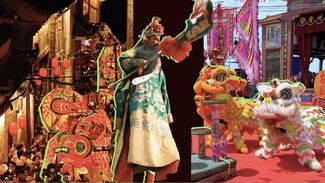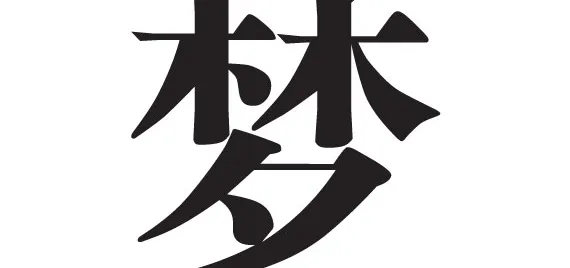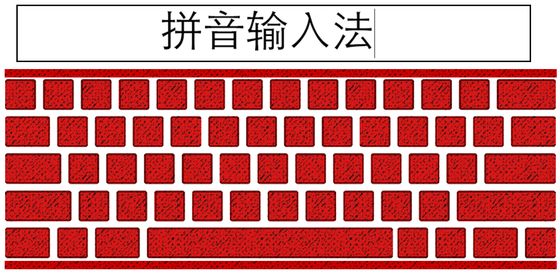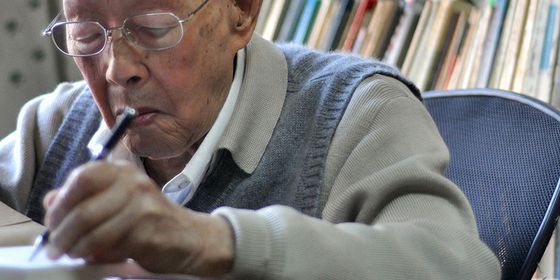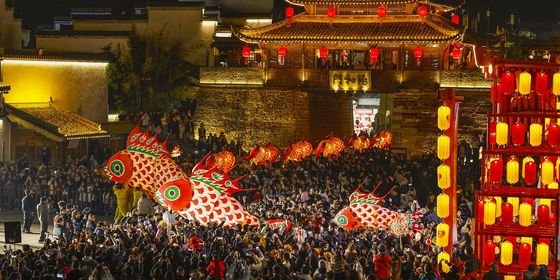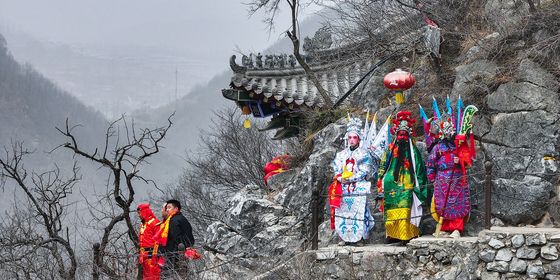Life is but a dream, so rest peacefully tonight before waking to face tomorrow understanding the origin and meaning of the Chinese character for “dream.”
梦 means to dream. The oracle bone character resembles a person sleeping and, at the same time, dancing a little in their dreams. 梦 (mèng) doesn’t appear in any bronze inscriptions, but it shows up in Qin Dynasty (221B.C.-207B.C.) seal script. According to the first Chinese dictionary, the 宀 on top of the seal script represents a house, the 爿 is a bed, and next to the bed is 夢, which means dusky or unclear, and also indicates the character’s pronunciation. Some people say that the 目 (mù, eyes) and 夕 (xī, sunset) in 夢 are meant to suggest that at night the eyes are tired and can’t see clearly.
The Qin version of 梦 is also rather complicated to write, so instead of writing out the complete character (composed of 宀, 爿 and 夢) many people wrote 夢 alone for convenience. That eventually replaced the original character, and by the Song Dynasty (960-1279), the character had been further simplified to 梦.
The dreams that make us happy—for example, a dream in which you win the lottery—are called 美梦 (měimèng, beautiful dreams). By contrast, a dream that scares you is an 噩梦 (Èmèng, terrifying dreams).
People say “日有所思, 夜有所梦 (rì yǒu suǒ sī, yè yǒu suǒ mèng) ” to mean that if you think about something during the day, you may dream about it at night. People living or working together with disparate desires and plans are experiencing “同床异梦 (tóng chuáng yì mèng),” having different dreams on the same bed.
When we sleep soundly, we enter “梦乡 (mèngxiāng),” the kingdom of slumber. In dreams, we come upon all sorts of beautiful and strange vistas; incredible scenes we see in the waking world are thus called 梦境 (mèngjìng, dream world). For example, people who are entranced by the dreamy scenery at Huangshan Mountain say, “走进黄山就像进入梦境一样 (zǒu jìn huángshān jiù xiàng jìnrù mèngjìng yīyàng).”
梦幻 (mènghuàn, illusion) is similar to 梦境. When someone experiences something truly bizarre, it is “像梦幻一般 (xiàng mènghuàn yībān, like an illusion).” Someone who is always unrealistic and indulges in fantasies needs to “走出梦幻” (zǒuchū mènghuàn).
People have many desires, and while some of those can be realized in the real world, some can only come true in our dreams. When you talk excitedly about a wish that’s hard to fulfill, others may chuckle and say, “你在做梦吧 (Nǐ zài zuòmèng ba! You’re dreaming!)”

There are many ancient stories about dreams. “黄粱美梦 (huáng liáng měimèng),” or “Pipe Dream,” is about a poor scholar who was sleeping in a small inn one day while the innkeeper was cooking millet. The scholar dreamed that he passed the highest examination and became a high official, attaining wealth and power. But when he woke up, he discovered he was still a poor scholar; wealth and power were just a “美梦. ” The innkeeper hadn’t yet finished making the millet. This story is often used as a metaphor for a person’s daydreams, or to describe a situation when hopes are dashed.
Life itself is much like a dream. The expression 人生如梦 (rénshēng rú mèng, life is like a dream) even appears in the dictionary, but only those who have seen enough of life’s ups and downs can appreciate its true meaning.
– Translated by Charlie Custer (葛亚辉)
Why is the character for home a pig inside a house?!

